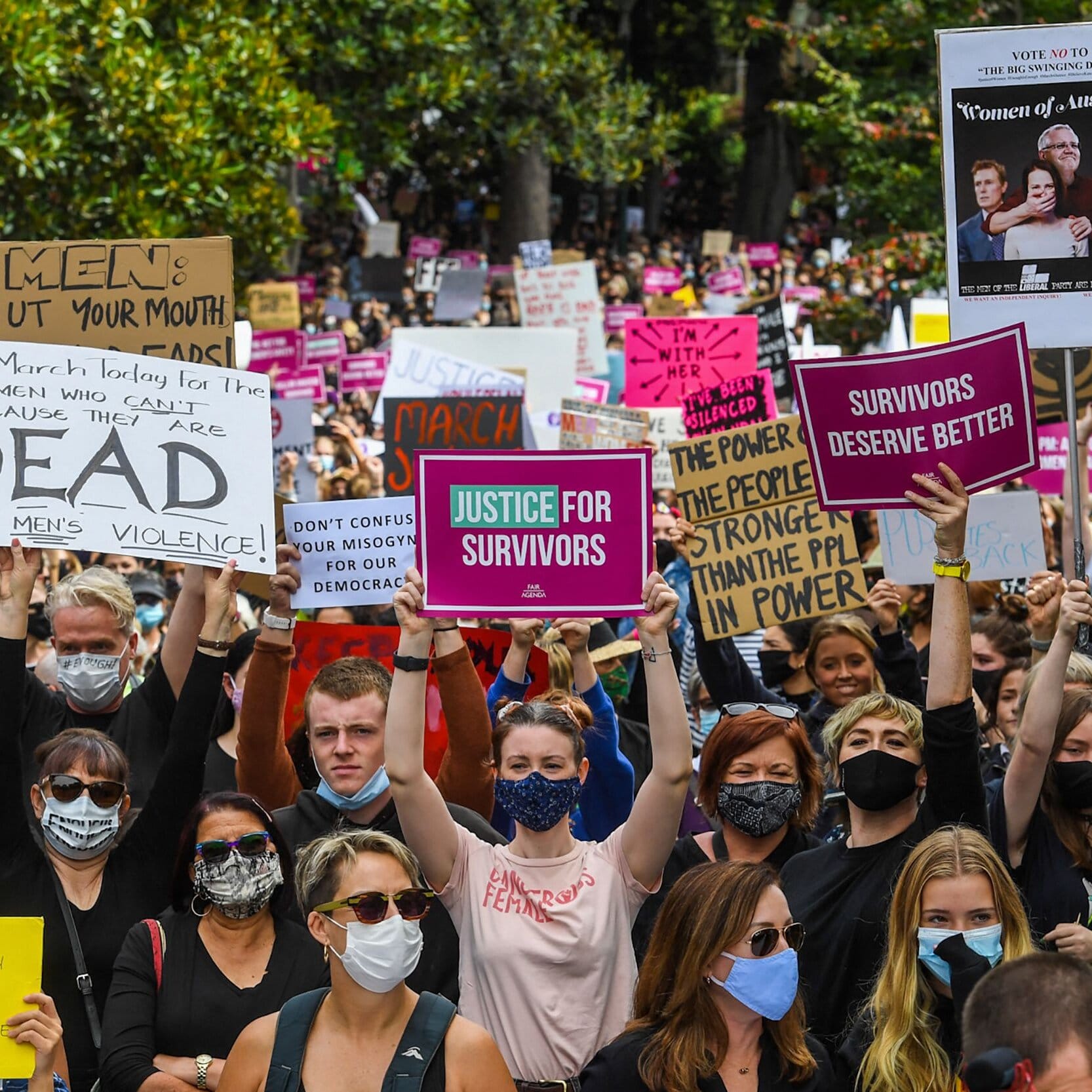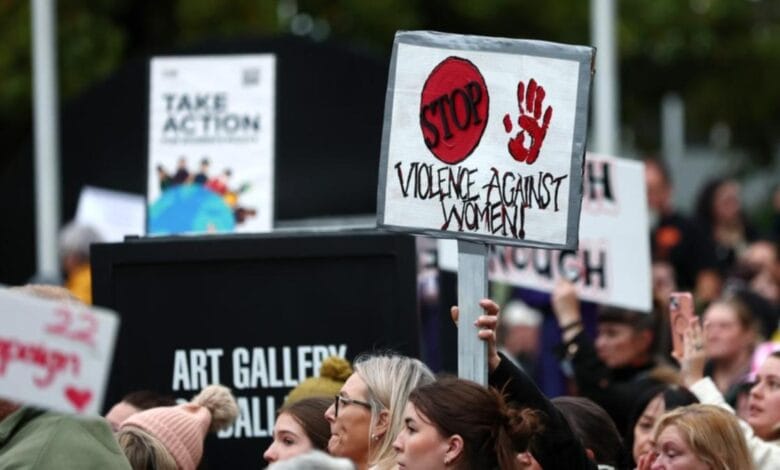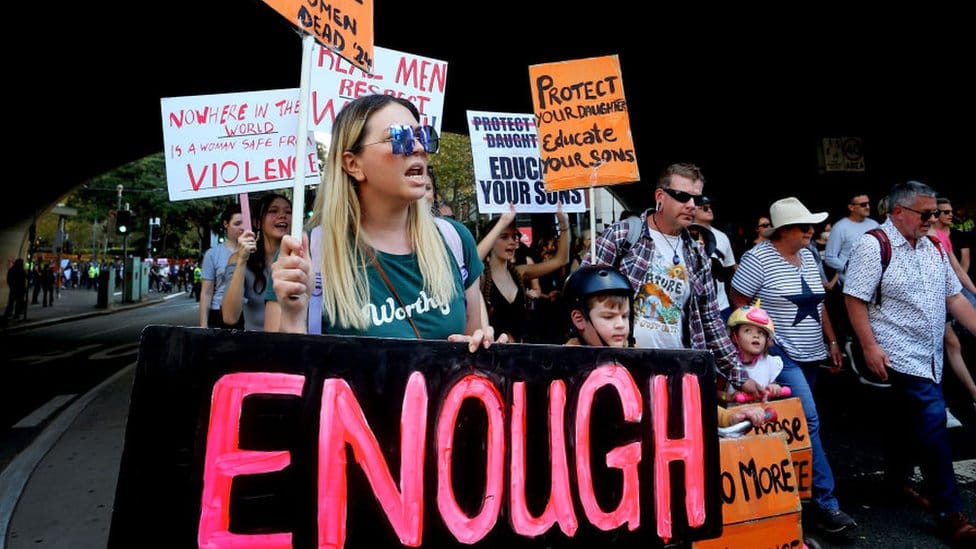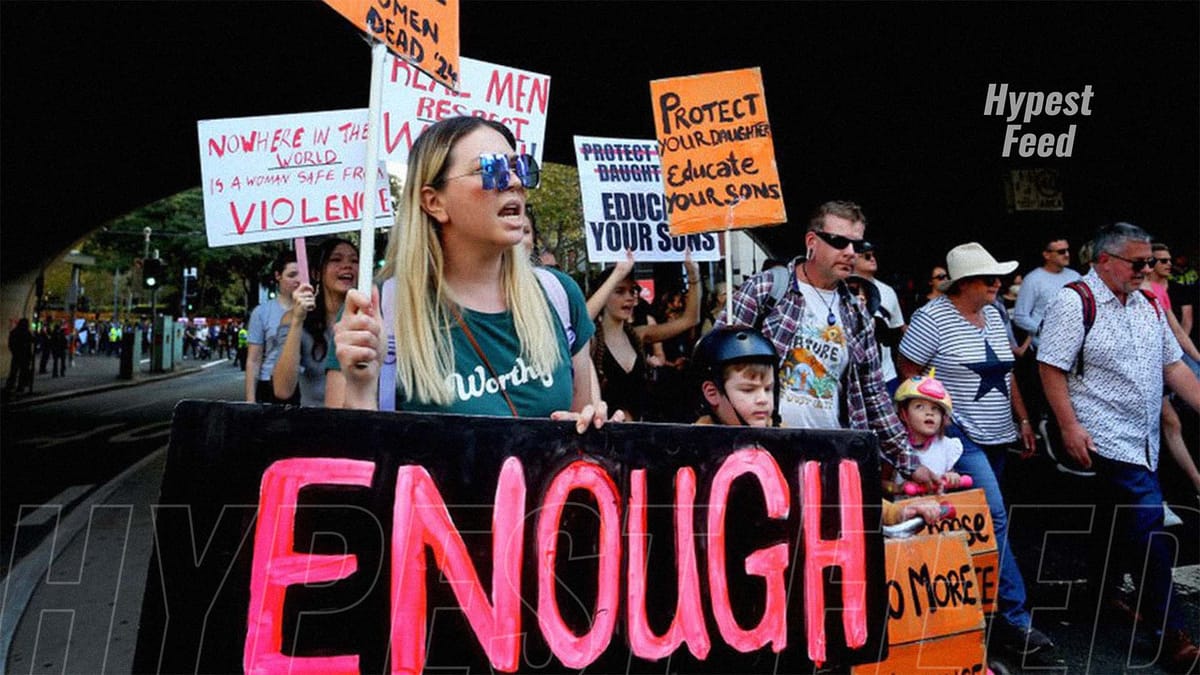Rallies have erupted throughout Australia as a response to a recent surge in violence against women. Protesters are advocating for gender-based violence to be formally recognized as a national emergency, urging for more stringent laws to combat it.
Prime Minister Anthony Albanese has labeled the issue as a nationwide crisis, acknowledging that a woman has tragically lost her life on average every four days this year in Australia. Organizers like Martina Ferrara are pushing for alternative reporting avenues for survivors, emphasizing the importance of empowering victims in their healing and reporting processes. Additionally, they demand swift government action in acknowledging and addressing the urgency of the situation.
During a massive rally in Canberra, attended by thousands, Albanese conceded that governments at all levels must improve their efforts in combating gender-based violence. He stressed the need for a cultural shift, highlighting that it is incumbent upon men to change their behavior as well.

Responding to calls for categorizing violence against women as a national emergency, Albanese clarified that such classification typically involves immediate financial aid during crises like floods or bushfires. However, he emphasized the need for ongoing, steadfast action to address this pervasive issue.
Tensions escalated when Albanese was barred from speaking at the rally, leading to a heated exchange with organizer Sarah Williams. This incident further underscored the passionate emotions surrounding the issue.
Despite calls for a royal commission into gender-based violence, Australia's federal attorney general, Mark Dreyfus, has rejected the proposal. While Albanese has repeatedly labeled gender-based violence as an epidemic, noting its recurrence in 2021 with marches protesting sexual misconduct allegations within parliament and society, the fight continues. Thousands have taken to the streets in cities like Adelaide, Brisbane, Melbourne, the Gold Coast, and Newcastle, underscoring the widespread demand for tangible action to end violence against women.

The recent spate of violence against women has sent shockwaves across Australia, reigniting concerns and prompting widespread rallies demanding urgent action.
The tragic incident at a Sydney shopping center earlier this month, where a man brutally stabbed six people to death, has particularly galvanized public attention. Alarmingly, five of the victims were women, prompting speculation about the potential targeting of women by the perpetrator. New South Wales Police Force commissioner Karen Webb highlighted that the assailant specifically focused on women while seemingly avoiding men, further emphasizing the gendered nature of the attack.
Adding to the somber atmosphere, news of the alleged murder of 30-year-old mother-of-four Erica Hay has amplified calls for justice and reform. Hay was discovered deceased after a devastating house fire in Perth, with a man subsequently charged in connection with her death. The circumstances surrounding her tragic demise have fueled outrage and demands for greater protection for women.

Disturbingly, statistics compiled by the campaign group Destroy the Joint reveal a harrowing reality: 27 women have lost their lives in the first 119 days of 2024 alone. This alarming figure underscores the urgent need for comprehensive measures to address gender-based violence and safeguard the lives of women across the country.
The convergence of these distressing events has prompted a groundswell of public outcry and activism, with communities uniting in solidarity to demand immediate and effective action from authorities. The collective grief and determination displayed at rallies nationwide serve as a poignant reminder of the pressing need to confront and combat violence against women in all its forms.



Member discussion: